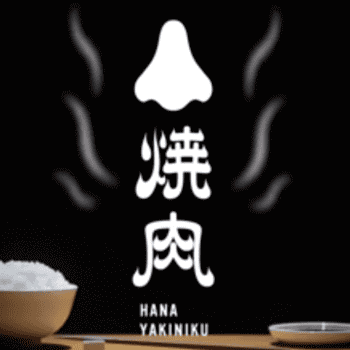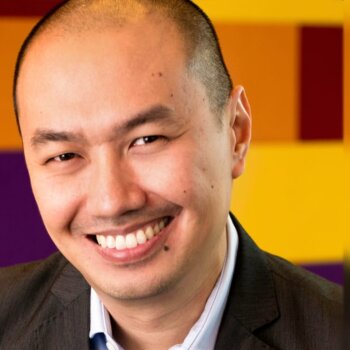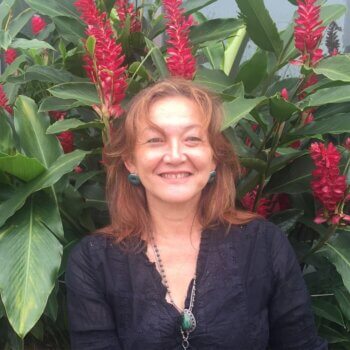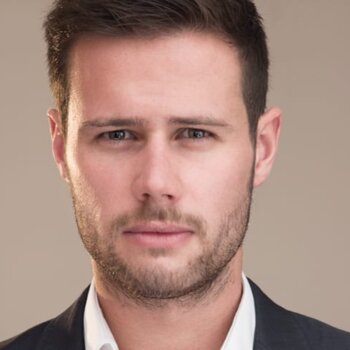(Women on Top in Tech is a series about Women Founders, CEOs, and Leaders in technology. It aims to amplify and bring to the fore diversity in leadership in technology.)
Kristin is Founder and CEO of Fluency Lighting. She has years of experience working in materials science and engineering and has published numerous scientific papers and patents in the field of solid-state lighting. She received her BS in Materials Science and Engineering from Rutgers in 2010 and Ph.D. in Materials from the University of California Santa Barbara (UCSB) in 2015, while also completing the Graduate Program in Management Practice certificate from the Technology Management Program at UCSB, focused on providing a foundation in business and management skills. During that time, the concept for Fluency was conceived and debuted in UCSB’s New Venture Competition in 2014.
What makes you do what you do?
Bringing technology to market for use in society is like solving a jigsaw puzzle and seeing all the pieces come together and take form. This is what I love about my job. The ability to create something new, and watch it transform into something useful for society.
How did you rise in the industry you are in?
I am still early in my career, but I have been able to prove my expertise in my field through pursuing my Ph.D. in Materials from UC Santa Barbara, publishing numerous scientific papers and patents in the field, attending and presenting at scientific conferences and sitting on entrepreneurial panels.
Why did you take on this role/start this startup especially since this is perhaps a stretch or challenge for you?
I started Fluency Lighting Technologies based on research from my graduate work, after taking a few business courses through UCSB’s Technology Management Program. I completed in UCSB’s New Venture Competition with the idea for Fluency, and founded Fluency that same year. Seeing a vision of how my research could be commercialized, learning the basics of how to start a business, realizing the need for more efficient light sources, and having the flexibility of just starting my career I decided that this was the time to dive into a startup.
Do you have a mentor that you look up to in your industries or did you look for one or how did that work?
My graduate school advisor, Professor Ram Seshadri, is my biggest mentor. Throughout my life, I have always looked up to teachers who made learning fun, the teachers I always enjoyed the most were math and science, which led me to my career as a scientist and engineer. Being a female in science and engineering or business is not always easy, but having mentors who believe in you, push you to achieve your best, and are always there for you can make that road a lot easier.
How did you make a match if you did, and how did you end up being mentored by him/her?
I have also been introduced to a number of other business and entrepreneurial mentors in the area through UC Santa Barbara and their Technology Management Program which foster innovation and entrepreneurship, and through other entrepreneurs in the area. I have found that the network of startups on the California central coast is very strong and having those connections can lead to many great interactions.
Now as a leader how do you spot, develop, keep, grow and support your talent?
I am still learning every day how to be the best leader I can be, and a big part of that is listening to my employees and getting their feedback. Our values are built upon: strong collaboration with our customers to deliver innovative lighting solutions; creation of eco-friendly products and practices to reduce global energy consumption and help preserve our environment; and encouragement of open and cooperative idea-sharing among our team members. We aim to create employment opportunities throughout our value chain and promoting a diverse workforce – the Fluency Force. Having a clear vision for employees and taking time to listen is key.
Do you consciously or unconsciously support diversity and why?
Being a female in this industry, I consciously support diversity in all aspects. Diverse teams prove to be the best teams. Having team members coming from multiple points of view, backgrounds, and life experiences promotes open and creative thinking.
What is your take on what it takes to be a great leader in your industry and as a general rule of thumb?
I think it is important to clearly know and articulate our goals, whether that be to employees, customers, investors, suppliers, or anyone. Being open and transparent about our business and motives builds trust with the people we interact with. Knowing what is important to those people shows that we understand their goals as well and can create a meaningful relationship.
Advice for others?
I was fortunate enough to have many great mentors throughout the process of starting this company and was given lots of great advice. As such, finding good mentors is key – it is important to have that network of knowledge and experiences because it is impossible to learn everything yourself and there are people out there who have done this before. One thing I wish I had been told is contrary to what I was told. I was told that having a co-founder is important, but I wish I was told that having the right co-founder is important, and having no co-founder over the wrong co-founder is better.
And finally, legal documents and lawyers, although they are a cost burden when first starting a company, are important and are there to protect you, whether it is incorporating the company, bringing on a co-founder, mentor, or employee, or finding a commercial partner, so be sure to utilize them.
If you’d like to get in touch with Kristin Denault, please feel free to reach out or connect with her on LinkedIn https://www.linkedin.com/in/kristindenault/
To learn more about Fluency Lighting Technologies, Inc., please visit
https://www.fluencylighting.com/




























